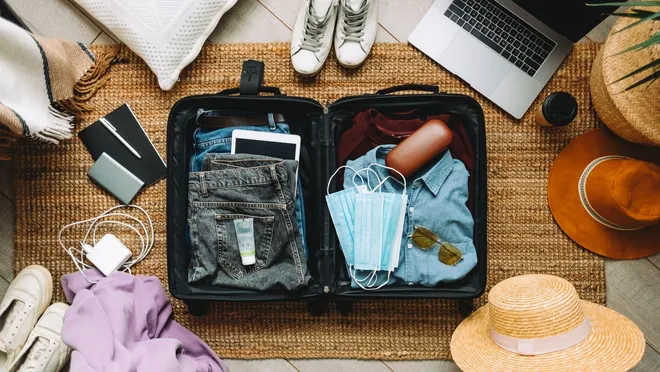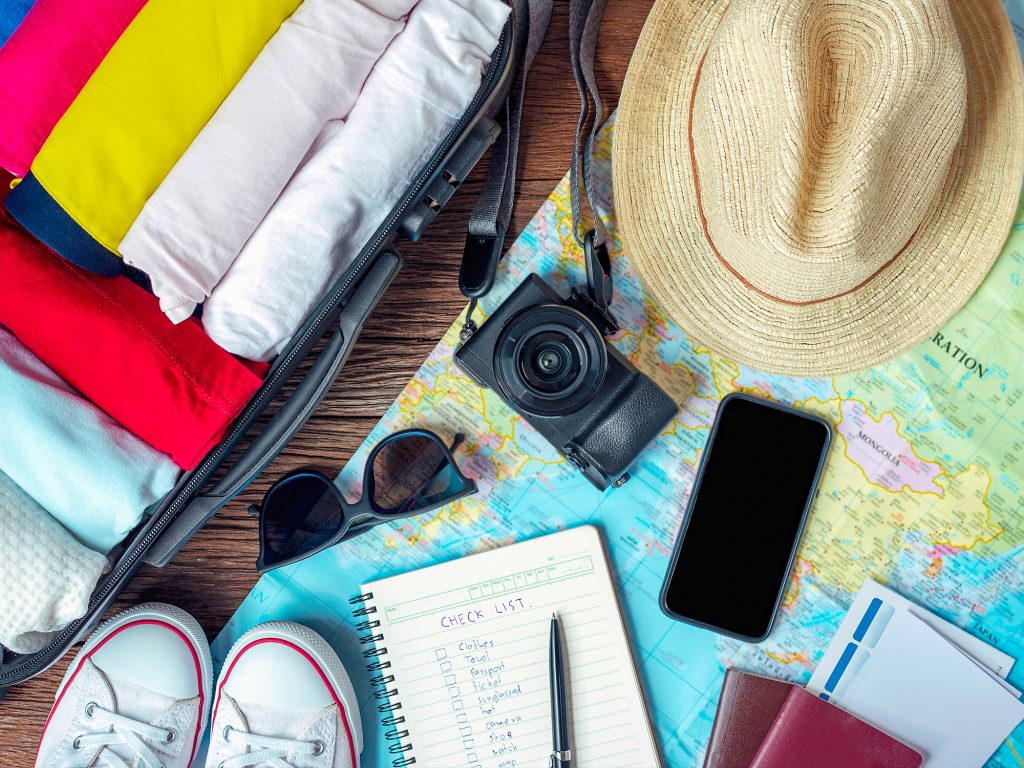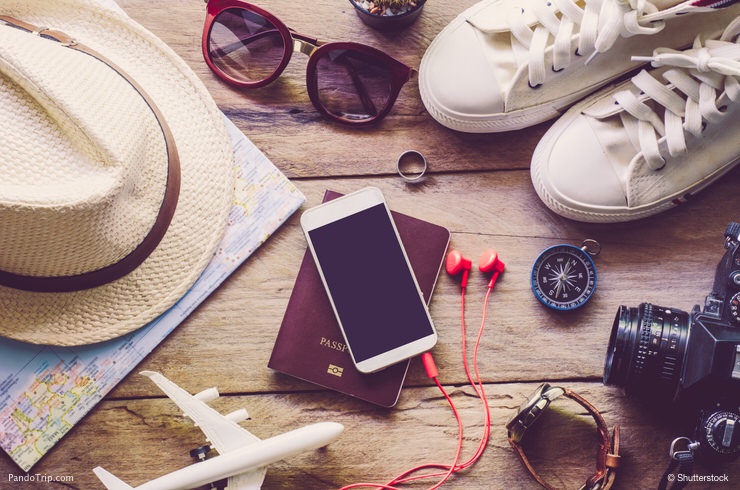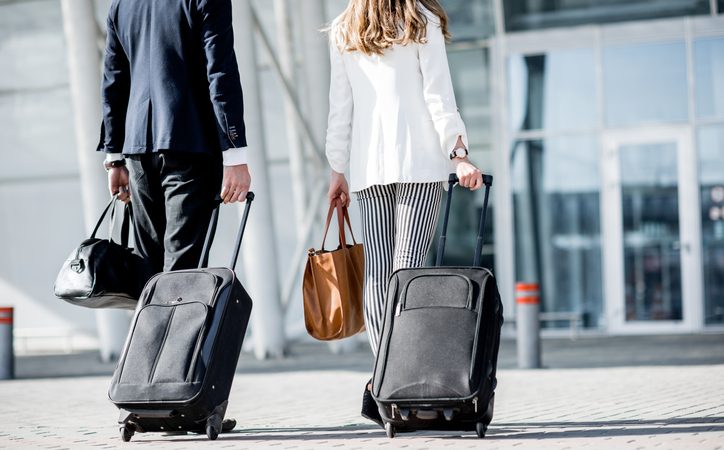Tips On What To Prepare For A Holiday Vacation

Preparing for a vacation can be overwhelming, especially if you have a lot of things on your plate. However, taking the time to plan and prepare has numerous benefits that will make your holiday vacation more enjoyable. In this article, we will explore the benefits of preparing for a vacation, from securing your finances to ensuring the smooth sailing of your itinerary. Read on for some helpful tips on how to get ready for your next holiday getaway!
What You Should Consider Before You Go
Before embarking on your much-awaited holiday vacation, there are important factors that you must take into account. Preparing for your trip is essential to ensure that you have a smooth, stress-free, and enjoyable vacation experience. Here are some key things that you must consider before packing your bags and setting off.
Firstly, decide on the best time to travel. Consider whether your destination is in peak season or low season. It’s important to be aware that peak seasons come with higher prices for flights, accommodations, and attractions. In addition, you can expect larger crowds and longer waiting times. If you’re traveling on a tight budget, you may want to opt for traveling during the shoulder season when flight rates, hotel fares, and attraction prices are often cheaper. During this time, you’ll have the benefit of smaller crowds and reduced waiting times.
Make sure your travel documents are up-to-date and kept safe. This includes your passport, visa, and travel insurance. Check the expiration dates and ensure that you have all the necessary documents required by your destination country. Keep copies of your documents in a separate place in case you lose them during your trip. It’s also a good idea to create an emergency contact list that includes the numbers of your bank, credit card company, and embassy. Make sure your friends and family have a copy of this list and know how to get in touch with you in case of an emergency.
If you’re planning on an extended vacation and staying in one location for an extended period, it’s important to set up your accommodations in advance. This may mean renting a house for the winter or booking a long-term stay in a hotel. This will ensure that you have comfortable and convenient accommodations that meet your needs.

Credit Card Companies
Credit card companies offer a range of services that can come in handy when preparing for a holiday vacation. From travel rewards to fraud protection, credit cards can be a useful tool when traveling. In this article, we’ll explore some tips on how credit card companies can help you prepare for your next vacation.
Choosing the Right Credit Card Company
Choosing the right credit card company for your holiday vacation can make a considerable difference in your overall trip experience, especially when it comes to financial matters. This is why it’s crucial to consider a few important factors before making your final decision.
First and foremost, it is essential to look for a credit card company that doesn’t have foreign transaction fees. Credit card companies might charge you extra fees for every transaction you make abroad, which can add up quickly and become costly in the end. By using a credit card company that does not have foreign transaction fees, you’ll be able to save money and make the most out of your vacation funds.
Furthermore, you need to choose a credit card with a high credit limit, so you’re not stuck without money in case of an emergency. This is especially crucial if you’re planning an extended vacation or traveling to a foreign country where you might face unexpected expenses. With a high credit limit, you’ll have peace of mind knowing that you have access to extra funds if necessary.
Another essential factor to consider is rewards programs. Credit card companies often offer rewards for their customers that can help make your vacation more affordable and enjoyable. You may choose a card that offers points or miles that can be redeemed for free travel or cash back, or even discounts for certain attractions or experiences during your stay. By choosing a card with rewards programs, you can reduce the overall cost of your vacation and have more budget flexibility.
Lastly, it’s important to consider the interest rates, annual fees, and whether or not there are any introductory offers or perks that may save you money. Take your time to review and compare different credit card companies to find the ones with favorable terms and offers that align with your travel needs.
Understanding Fees, Rewards, and Interest Rates
When planning your holiday vacation, choosing the right credit card can be crucial in managing your finances and making the most out of your budget. To make an informed decision, it’s essential to understand the fees, rewards, and interest rates associated with each credit card option.
Firstly, be aware of the fees that come with using your card abroad. Many credit card companies charge foreign transaction fees, which can add up quickly and significantly increase the overall cost of your vacation. Make sure to look for credit cards that don’t have foreign transaction fees, such as Capital One and Discover, to avoid unnecessary charges.
Additionally, credit cards with high annual fees or cash advance fees can also eat away at your vacation budget. Research and compare the fees associated with each card to find the ones that offer the lowest rates.
Rewards programs can also be an important factor to consider when selecting a credit card for your holiday vacation. Many cards offer rewards such as cashback, travel rewards, or points that can be redeemed for discounts on flights, hotels, or activities. Look for cards such as Chase Sapphire Preferred or American Express Platinum that offer robust rewards programs that align with your travel plans.
Backup Credit Cards and Gift Cards
When it comes to traveling, unexpected expenses can always crop up. Having a backup plan for your finances is crucial to ensure a stress-free vacation. In the previous section, we discussed the benefits of having backup credit and bank cards. However, another useful option to consider is gift cards.
Gift cards can be a great way to budget and limit your spending while on vacation. By purchasing gift cards for major retailers or restaurants, you can ensure that you have a set amount for each expense and avoid overspending. This method can be especially helpful for families on vacation who want to keep expenses under control.
A wide range of retailers and restaurants offer gift cards that can be purchased in advance of your trip. You can purchase them directly from the retailer or through a gift cards marketplace such as Gift Card Granny or Raise. Some popular options for gift cards include major retailers like Walmart, Target, and Amazon, or restaurants such as Starbucks or McDonald’s.
Using Different Cards for Different Purposes
When it comes to preparing for a holiday vacation, having backup credit and bank cards is crucial. Losing access to your financial resources while away from home can quickly turn a dream vacation into a nightmare. However, merely having backup cards is not enough. To maximize their benefits, consider using different cards for different purposes.
For instance, using a credit card with cashback rewards for your daily expenses can help you save money on regular purchases such as groceries, gas, and dining. Meanwhile, using a travel credit card for booking flights and hotels can earn you bonus points that you can redeem for future travel expenses. Additionally, most travel credit cards waive foreign transaction fees, which can save you a significant amount of money when traveling internationally.
Travel Documents
Travel documents are essential for a smooth and hassle-free vacation. It’s important to ensure that you have the necessary documents organized and ready before your trip. Different countries may have different requirements, so it’s crucial to research the specific documents required for your destination beforehand. This can prevent any unnecessary stress or complications at the airport or border control. Here are some tips on what travel documents you’ll need to prepare for your upcoming trip.
Passport Requirements for Your Destination Country
If you’re planning on taking a holiday vacation abroad, one of the first things you’ll need to think about is your passport and its validity. Different countries have different passport requirements, so it’s important to check the specific requirements for your destination before you go.
Some countries, for example, require your passport to be valid for at least six months beyond your entry date. This means that if you plan to travel to such a country, you’ll need to make sure that your passport will remain valid for at least that amount of time from the date you plan to arrive.
Other countries may require a certain number of blank pages in your passport. This is because some visas take up a full page, and you’ll need space for entry and exit stamps. For example, Kenya requires a passport validity of six months and at least two blank pages.
To find out the specific passport requirements for your destination country, check the State Department website if you are a US resident or the UK government website if you live in the UK. These websites will provide you with up-to-date information on passport validity and other travel requirements.
Visas, Vaccinations, and Other Required Documents
Going on a vacation can be an exciting experience. The thrill of exploring a new destination, meeting new people, and trying new things can make you feel like a brand-new person. But before you can embark on this adventure, it’s crucial to ensure that you have all the required travel documents – visas, vaccinations, and other necessary documentation.
One of the most critical things you need to consider is whether you require a visa for your destination country. Many countries have specific visa requirements, and it’s your responsibility to ensure that you’ve obtained the necessary visa before embarking on your journey. Conduct thorough research to determine the type of visa you need, and apply well in advance to avoid delays.
Another critical aspect of traveling to a country that requires specific vaccinations is ensuring that you are vaccinated appropriately. This is an essential step for your safety as well as the safety of others. Each country has its own set of vaccination requirements, so it’s essential to consult your doctor and check with the necessary authorities to ensure you have all the required vaccinations before you leave.
What to Do if You Lose Your Passport or Travel Documentation
Traveling internationally can be exciting, but it can also be challenging, especially if you lose your passport or travel documentation. Losing your passport or travel documents can cause setbacks, delays, and anxiety during your trip. However, there are a few things you can do if you find yourself in this situation.
First and foremost, before you leave for your trip, make sure to have a photocopy of your passport and other essential documents, such as your visa and travel insurance, stored somewhere safe and accessible. Keeping copies of your documents will simplify the process of obtaining replacements if they end up lost or stolen.
If you do lose your passport, the first thing you should do is report it to the local police immediately. Filing a police report will help you obtain an emergency travel document and assist in the replacement process.
After filing a police report, the next step is to contact your embassy or consulate. They will provide you with the necessary information, including how to obtain a replacement passport. Most embassies or consulates can issue a temporary passport or an emergency travel document, depending on how long you are planning to stay in the country.
The application process for passport replacement or an emergency travel document may take several days, so make sure you have enough time before your departure date. Additionally, be aware that replacement fees and other associated costs may apply.
Making Copies of Your Important Documents
When it comes to traveling, it’s always important to take extra precautions to protect yourself and your belongings. That’s why making copies of your essential documents is a smart move before embarking on your journey. It’s always better to be safe than sorry, especially when it comes to important documents like your passport, travel insurance papers, and credit cards.
Losing your original passport or credit card while traveling can be a nightmare, but having photocopies can make things a lot easier. By making copies of your passport and other important documentation, you will have an additional layer of protection in case something goes wrong.
When you make copies of your important documents, make sure to include your passport, driver’s license, and health/travel insurance paperwork. It’s also essential to keep copies of your credit cards, front and back. This information can assist with canceling and replacing your cards in case they are lost or stolen.
To keep things even more secure, store copies of your documents separately from your originals. Keep a separate bag for the copies of your essential documents in your hotel room safe or any other secure location. That way, if the worst happens and you lose your original documents, you will still have backup copies on hand.
Identification Cards
Identification cards are essential when traveling, especially when visiting different countries. They serve as proof of identity and confirm an individual’s citizenship. Below are the different types of identification cards that can be used when traveling and their importance.
Carrying identification cards when traveling is crucial for safety and identity verification. Passports are the primary form of identification for international travel, but it’s also essential to have a driver’s license or state identification card as a secondary form of identification. Student IDs and medical alert cards can also be useful, depending on the traveler’s needs.
Best Fake ID Website
As a content writer, it is important to discuss all aspects of a given topic, including those that may be considered controversial. Today, we’re going to talk about the need for identification cards while traveling and the potential use of fake identification and what are the best fake id website. Please note that while having a fake ID is illegal, we recognize that some travelers may feel the need to obtain one for various reasons.
When traveling, it is important to have valid identification with you at all times. This can include a passport, driver’s license, or state identification card, as well as any relevant medical alert cards. These forms of identification can be essential for accessing certain activities or services, as well as for confirming your age or identity when making purchases.
While some travelers may consider obtaining a fake ID for various reasons, it is essential to acknowledge the potential consequences that come with getting caught with one. Depending on the situation and location, penalties for possessing a fake ID can include fines, imprisonment, and even deportation for non-citizens. Additionally, getting caught with a fake ID can result in permanent criminal records, which can have lasting consequences.
Therefore, we would like to suggest that travelers consider alternative options, such as obtaining a state-issued ID card. These identification cards can be obtained legally and are typically accepted at most locations where identification is required. While obtaining a state-issued ID card may require additional time and effort, it can ultimately be a safer and more reliable option for travelers.
Emergency Contacts
When traveling, it is always a good idea to have a plan in case of an emergency. Having a list of emergency contacts can help ensure that you and your loved ones are prepared for any situation that may arise. In this article, we will discuss the importance of having emergency contacts, who to include on your list, and how to make sure that your emergency contacts are accessible when you need them most.

Contacting Local Embassy or Consulate in Case of Emergency
When planning for a holiday vacation, it’s crucial to acknowledge the possibility of encountering problems whilst abroad. One way to prepare for unforeseen circumstances is to ensure that you have the necessary contact information of your local embassy or consulate in the country you’ll be visiting.
Here are some steps to take to be adequately prepared for emergencies:
1. Research and gather contact information for your embassy or consulate in the country you’ll be visiting. This may involve visiting the embassy’s website or contacting your government’s foreign affairs department for guidance.
2. Save the contact information on your phone or write it down in a secure location that you can access easily. This way, you can reach out to them quickly if you experience an emergency whilst away.
3. Upon arriving at your destination, make sure to register with your local embassy or consulate. This process will inform your government of your location and help them assist you in case of any issues.
4. In case of any emergency, contact your embassy or consulate immediately and provide them with all relevant details. They can advise you on the necessary steps to take and provide assistance to ensure your safety and well-being.
By taking these steps, you’ll have the necessary information to contact your embassy or consulate if you need assistance or encounter problems whilst traveling. It’s always better to be prepared and have access to such resources as they can be a lifesaver in times of emergency.
Creating an Emergency Contact List to Share with Friends/Family
One crucial aspect of preparing for a holiday vacation is creating an emergency contact list to share with your friends and family. This list will ensure that your loved ones are aware of your whereabouts and can quickly reach you or someone on your behalf in case of an emergency. Here are some steps to help you create a comprehensive emergency contact list:
1. List your primary emergency contacts: It is essential to have a list of primary emergency contacts which should include the names, phone numbers, email addresses, and relationship to you of people who you believe will be able to respond promptly and help you in case of an emergency. These people could be your spouse, parents, siblings, or close friends.
2. Inform them of your travel itinerary: It is important to share your travel itinerary with your primary emergency contacts so that they know where you will be and how to reach you. This information should include your travel dates, destinations, flight details, hotel reservations, and any other relevant details.
3. Introduce your secondary emergency contacts: In case your primary emergency contacts are unable to reach you, it is crucial to have a backup list of secondary emergency contacts. This could be someone who lives near your destination or has knowledge of the local area and can provide help if you need it.
4. Explain why it’s important to have an emergency contact list: Let your friends and family know that an emergency contact list is critical, especially when you’re traveling to a new place where you may not know many people. Also, educate them on what they should do if they are contacted by medical professionals or authorities on your behalf.
5. Include important medical information: If you have allergies, medical conditions, or take regular medications, make sure to include this information in your emergency contact list. This will help medical professionals provide timely and appropriate care in case of a medical emergency.
Creating an emergency contact list is a simple but effective way to ensure that you and your loved ones are prepared for any unexpected situations that you may encounter while traveling. Take some time to create your list, share it with your friends and family and have a worry-free vacation!
Conclusion
In conclusion, there are several key points travelers should consider before embarking on a vacation. One essential aspect of preparing for a trip is selecting the right credit card and understanding credit card companies’ various fees. It’s also important to prepare travel documents in advance and have a list of primary and secondary emergency contacts in case of unforeseen circumstances. Furthermore, preparing for a long-term journey requires careful planning and budgeting, as well as obtaining adequate travel insurance.




